Alabama heralds 'last slave ship' discovery; ponders future
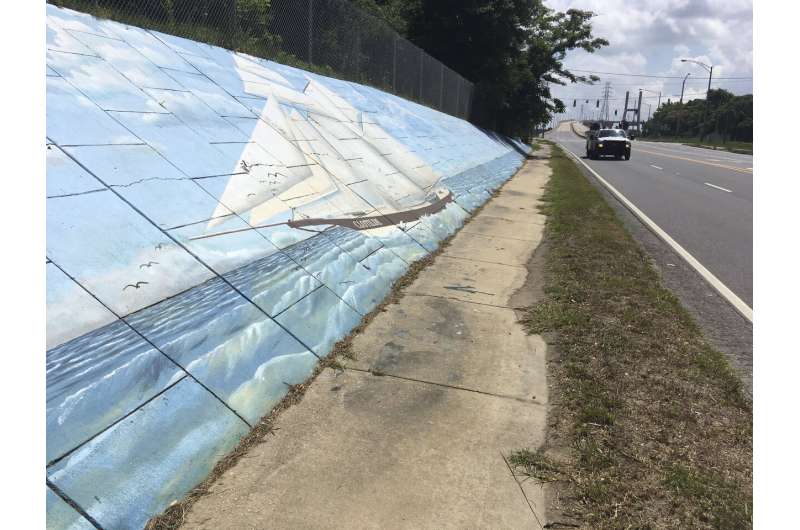
Dives into murky water, painstaking examinations of relics and technical data and rigorous peer review led historians and archaeologists to confirm last week that wreckage found in the Mobile River in 2018 was indeed the Clotilda, the last known ship to bring enslaved Africans to the United States.
An event heralding the discovery Thursday afternoon in the Mobile community of Africatown made clear that much work remains. The Alabama Historical Commission and others working on the project must decide how much can be salvaged, whether it can be brought ashore or if it should be left in place and protected.
Perhaps more important: How can the interest and publicity engendered by the discovery of the Clotilda be harnessed to foster economic and racial justice in the community?
Anderson Flen, a descendent of one of the Clotilda's enslaved, believes the historic find can spark new discussions on those topics.
"Number one is talking and communicating honestly and transparently," Flen said after a news conference on the effort to confirm the discovery. "The other thing is beginning to make some tangible things happen in this community."
Another Clotilda survivor's descendant, Darron Patterson, said Africatown residents "have to come together as a group to make sure we're on one page, of one accord, to make sure this community survives."
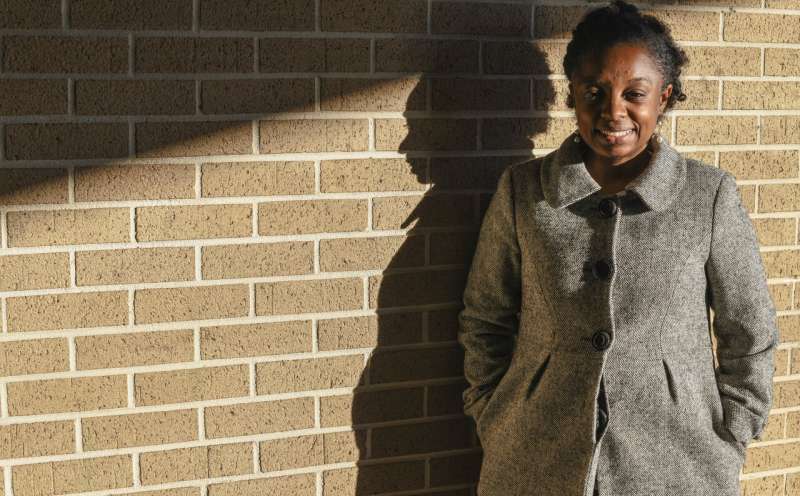
Thursday's gathering at a community center drew roughly 300 people. Government officials taking part included U.S. Rep Bradly Byrne—who said he would work to help make Africatown "a place that people all over the world are going to want to come to"—and a representative from Sen. Doug Jones' office. A statement celebrating the discovery from Gov. Kay Ivey was read by historic commission chairman Walter Givhan.
Officials credited Alabama journalist Ben Raines with renewing interest in locating the remains of the Clotilda. Raines had reported that he believed he had located the ship last year. Even though the ship he found turned out not to be the Clotilda, it led to the commission's and other organizations' efforts to locate the Clotilda's wreckage.
A team of maritime archaeology experts conducted an assessment of a previously unsearched area of the Mobile River and historical research and an archaeological survey revealed up to two dozen 19th and 20th century vessels. One closely matched characteristics of the Clotilda and peer-reviewed findings led researchers to conclude that the wreckage is the Clotilda.
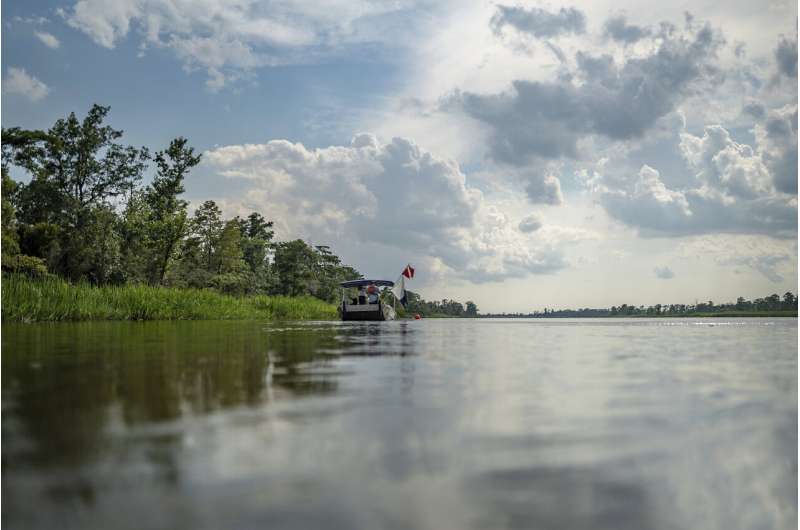
Officials have said they are working on a plan to preserve the site where the ship was located. Beyond that, the ship's future is uncertain.
"This is the point where we pause," Givhan told reporters. "We have to do our duty in protecting it. That's job one right now."
More experts will be brought in to determine the next move. "There are several options, obviously, as to whether you leave it in place, whether you bring up certain artifacts," Givhan said.
-
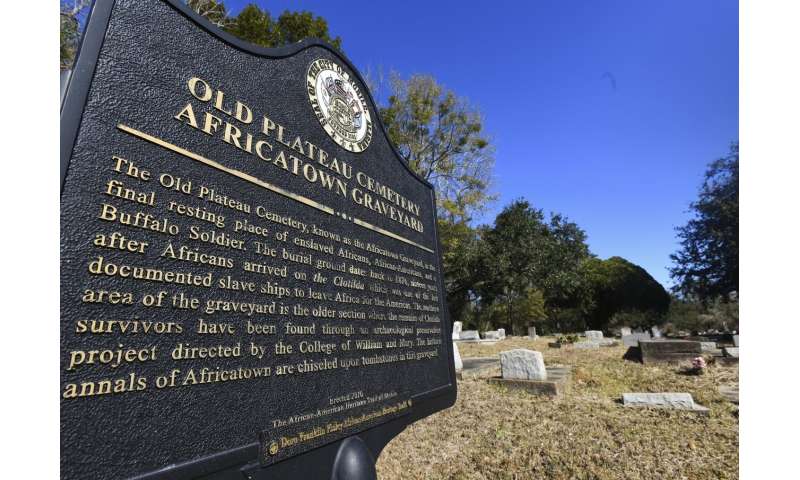
In this Tuesday, Jan. 29, 2019, file photo, Old Plateau Cemetery, the final resting place for many who spent their lives in Africatown, stands in need of upkeep near Mobile, Ala. Many of the survivors of the slave ship Clotilda's voyage are buried here among the trees. On Wednesday, May 22, 2019, authorities said that researchers have located the wreck of Clotilda, the last ship known to bring enslaved people from Africa to the United States. (AP Photo/Julie Bennett, File) -
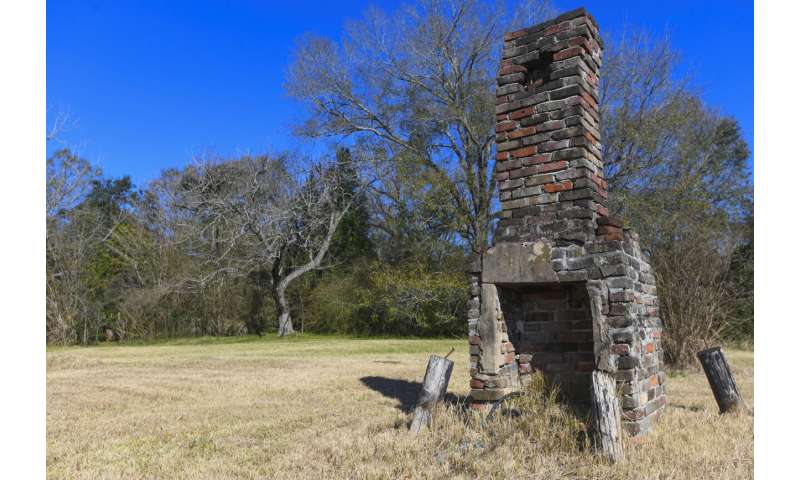
In this Tuesday, Jan. 29, 2019, file photo, a chimney, the last remaining original structure from the days when survivors of the Clotilda, the last known slave ship brought into the United States, inhabited the area, stands in an abandoned lot in Africatown in Mobile, Ala. On Wednesday, May 22, 2019, authorities said that researchers have located the wreck of Clotilda. (AP Photo/Julie Bennett, File) -
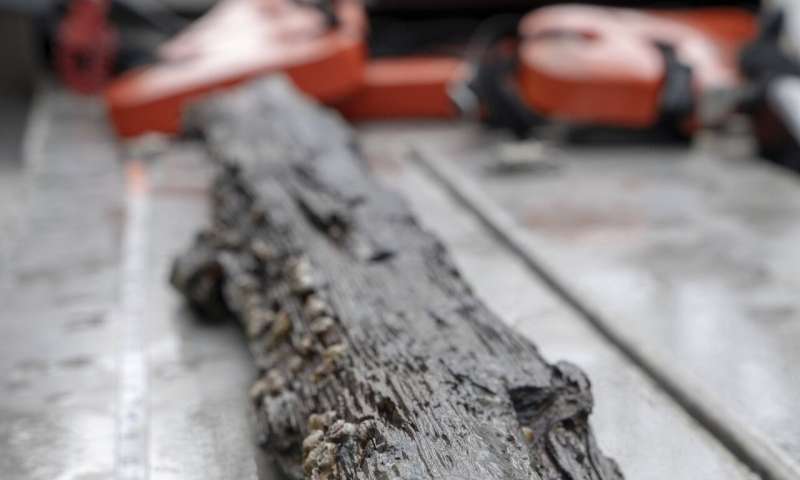
In this undated image released by SEARCH Inc. in May 2019, archaeologists examine a loose piece of the wrecked Gulf schooner Clotilda, in delta waters north of Mobile Bay, Ala. The old wooden ship hull didn't look like much when researchers first saw it: just broken, waterlogged boards and a few pieces of rusted metal, all stuck in the muddy bottom of a bug-infested Alabama bayou where an alligator and poisonous water moccasins swam nearby. (Daniel Fiore/SEARCH, Inc. via AP) -
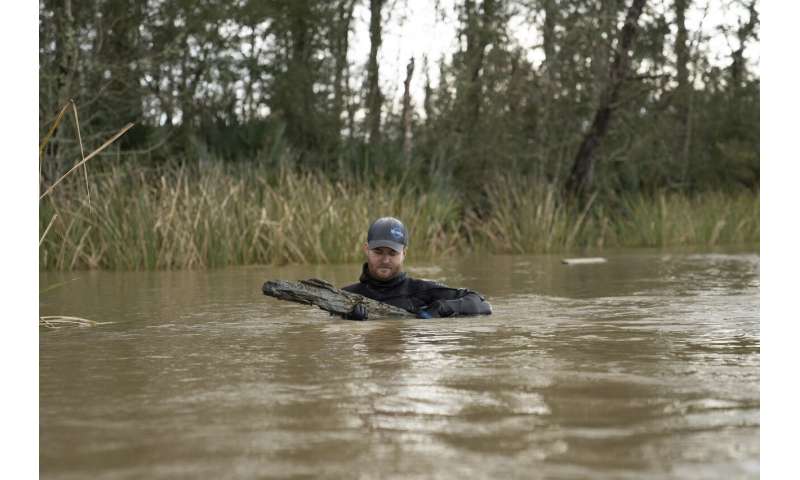
In this undated image released by SEARCH Inc., maritime archaeologist Kyle Lent examines a wooden plank from the hull of Clotilda, in delta waters north of Mobile Bay, Ala. Remains of the Gulf schooner Clotilda were identified and verified near Mobile after months of assessment, a statement by the Alabama Historical Commission said. (Daniel Fiore/SEARCH, Inc. via AP) -
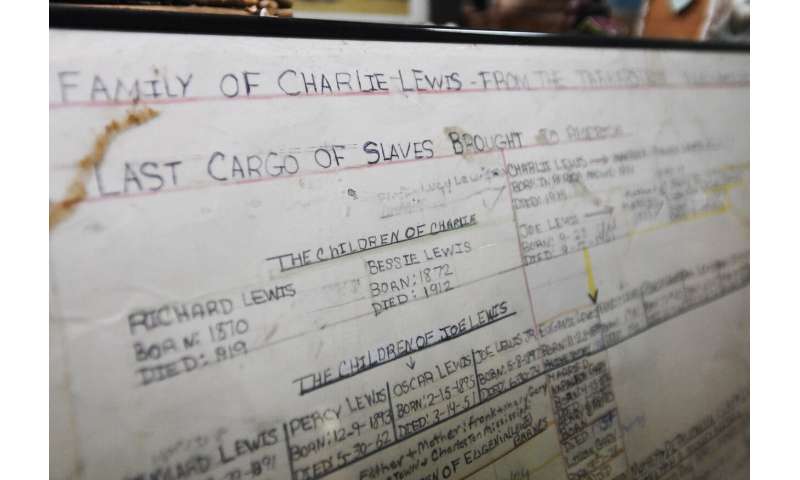
This Tuesday, Jan. 29, 2019, file photo, shows the family tree of Lorna Gail Woods, a direct descendant of slave ship Clotilda survivor Charlie Lewis, in Africatown in Mobile, Ala. Woods grew up in Africatown and keeps a makeshift museum of the area's history. On Wednesday, May 22, 2019, authorities said that researchers have located the wreck of Clotilda, the last ship known to bring enslaved people from Africa to the United States. (AP Photo/Julie Bennett, File) -
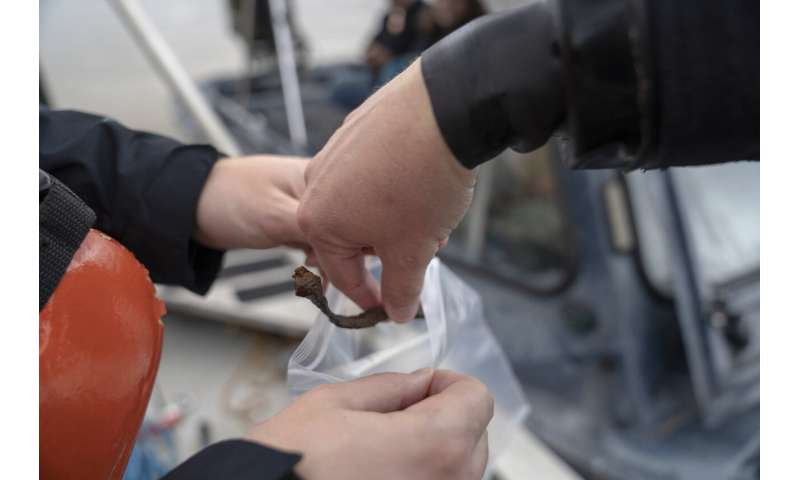
In this undated image released by SEARCH Inc. in May 2019, artifacts recovered from the shipwreck of Gulf schooner Clotilda are bagged, in delta waters north of Mobile Bay, Ala. Laboratory analysis showed the spike to be made of pure iron common to pre-1870s iron working. (Daniel Fiore/SEARCH, Inc. via AP)
James Delgado, a maritime archaeologist who helped lead the team that verified the wreck as the Clotilda, recently told The Associated Press that the ship's remains are delicate but the potential for both research and inspiration are enormous.
Joycelyn Davis, a descendant of one of the Africans held captive aboard the ship, said she wants to somehow honor both the ship's human cargo and the hard work of them and their descendants in forming Africatown .
Jerry Ward, an African American man who said he lives near Africatown, said he'd like to see the ship reconstructed as part of an effort to educate people about its history. "To know where you're going, you've got to know where you come from," Ward said.
The commission said organizations involved in the research and survey efforts include the Black Heritage Council, the National Geographic Society, the Smithsonian National Museum of African American History & Culture, the Slave Wrecks Project, Diving with a Purpose, SEARCH Inc. and the National Park Service.
© 2019 The Associated Press. All rights reserved.





















